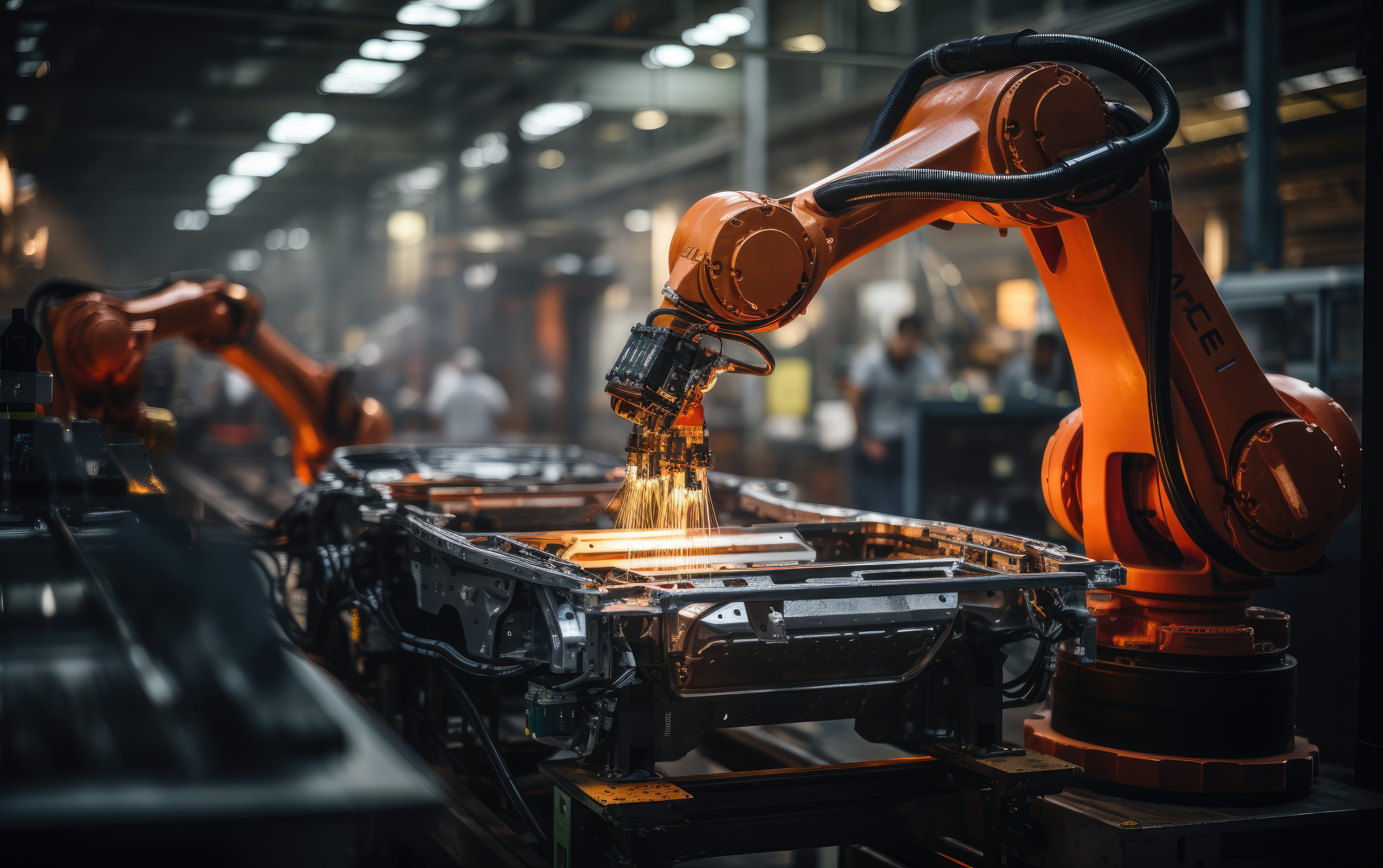South Korea unleashes AI revolution to address workforce shortage
- Josephine Tan
- Topics: Digital Transformation, Home Page - News, News, South Korea

Facing a persistent manpower shortage, the South Korean government is turning to AI as a key solution, announcing plans to deploy AI technologies in manufacturing plants across the country. This initiative, unveiled by the Ministry of Trade, Industry and Energy, aims to transform key industries such as automotive and shipbuilding, while boosting export performance and attracting foreign investments.
The ministry will spearhead the development of a master plan for AI-powered autonomous manufacturing in the first half of 2024. This plan will focus on pilot projects in various regions throughout the year, involving collaborations with the Ministry of Science and ICT and the Ministry of SMEs and Startups. The ultimate goal is to expand this new method to other sectors, requiring an estimated private investment of 150 trillion won (US$113 billion).
To attract the necessary investment, the ministry has pledged a state fund of 14.7 trillion won (US$11 billion) for 2024. This initiative includes streamlining regulations, offering tax breaks, and eliminating bureaucratic hurdles that hinder investments in future-oriented industries. Additionally, the government will prioritise private sector leadership in R&D, designating 40 key projects in competitive industries and focusing research budgets to support local organisations.
READ MORE: South Korea embraces AI’s transformation of labour market
The AI push is part of a wider strategy to achieve US$700 billion in exports in 2024, exceeding the previous record of US$683.6 billion. Other initiatives include expanding free trade agreements, securing critical resources for domestic industries, and focusing on 10 prioritised markets and 30 key products to streamline government support and maximise exports.
Aligned with the national goal of carbon neutrality by 2050, the ministry’s Carbon Free Alliance will focus on attracting global participation in transitioning the country’s power grid to carbon-free energy sources. This initiative reportedly embraces both nuclear power and renewable energy resources like hydrogen, reported The Korea Times.






